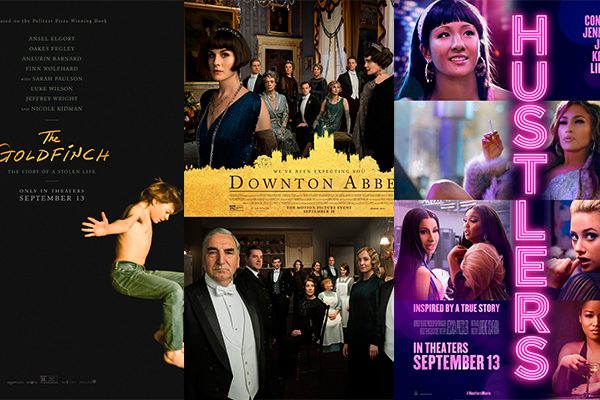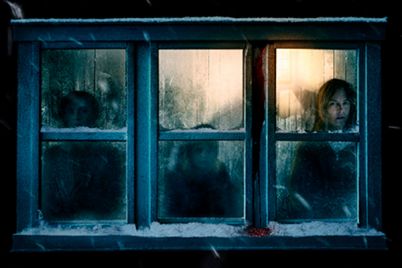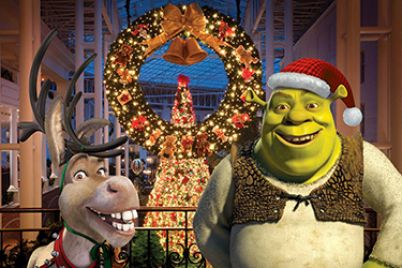
HUSTLERS’ BRINGS FRESH NARRATIVE, DRAWS CRITIQUE FROM SEX WORKERS
Lilly Kujawski | Editor
Rating: A-
See it if: You love Cardi B, J. Lo and the rest of the star studded cast
Skip it if: You don’t like women
“Hustlers” hit the silver screen last week, and brought with it praise, controversy and a $33 million weekend.
The film, which stars Jennifer Lopez and Constance wu (along with much-anticipated special appearances from Cardi B and Lizzo), is based on the real life experiences of real-life women Samantha Barbash and Roselyn Keo.
In the film, Ramona (Lopez) and Destiny/Dorothy (Wu) are dancers at a fictional strip club called Moves who meet and become friends. After the 2008 recession, business is slow at the club and the dancers struggle to support themselves.
Ramona, Destiny and fellow Moves strippers Annabelle (Lili Reinhart) and Mercedes (Keke Palmer) start “fishing” at bars for men to bring back to the club to draw in clients. However, their attempts are a hit-or-miss, so per Ramona’s lead, the women decide to slip a mix of ketamine and MDMA in the mens’ drinks as a guarantee to get them to the club where they run up their credit cards.
It works. The ladies are bringing in more money than they know what to do with—besides spending it on Louboutin heels and fur coats.
However, the stakes become higher as the women make bigger and riskier money moves.
It was enlightening to watch a film that was so centered around women—especially one with mainly women of color in leads. The film gave women a voice in a way that many other films often fail to.
The fierce friendship between Destiny and Ramona was a major part of the plot and it was refreshing to see so much empowerment, friendship and support between the women in the film.
Dancers at the strip club venue where the movie was filmed were reportedly out of work during production, though some were hired as extras for the movie. Many real-life sex workers criticized the heavy Twitter promotions the film received—a platform that they say has restricted, or “shadowbanned” real sex workers’ content, preventing them from reaching clientele.
“We get it, to civilians, @HustlersMovie is just a movie. But to us REAL hustlers, it’s more,” said Twitter user @Victoriaxxxjade in a tweet. “It’s dozens of real strippers losing a week of work with NO compensation. It’s sex workers being shadowbanned on social media/unable to advertise whereas the movie has all the platform.”
Others urged the cast to use their platforms to advocate for real sex workers and sex work decriminalization.
The acting in “Hustlers” was exceptional (and who knew Reinhart could make vomiting seem so cute?). I do wish Cardi B and Lizzo had more screentime, as the previews and promos suggest.
The film was also criticized because the women drug the (mostly Wall Street) men without their knowledge or consent and steal their money.
Ramona repeatedly justifies the squad’s actions by reminding them that “these Wall Street guys” have been stealing money and screwing people over for years. She tells them it’s already stolen money that they are dealing with.
“Hustlers” isn’t just a film about a few strippers who drugged and robbed men; it’s a story about friendship, one about empowerment, gender-based violence and discrimination, poverty and the wage gap, sex work, motherhood, independence, and survival. And it’s got a killer soundtrack.
ALL THAT GLITTERS IS ‘GOLDFINCH’
Catherine Engstrom-Hadley | Staff Writer
Rating: C-
See it if: You want to see something pretty, you liked the novel
Skip it if: You loved the novel
My mother once had a beautiful collie. Her name was Lady. she was lovely, and kind, but she was, putting it nicely, not the sharpest tool in the shed. I remember she had a habit of running full force into the closed, bright red, front door. I thought of her while watching The Goldfinch, a truly beautiful movie with nothing to offer besides eye candy.
If you read the book, Donna Tartt’s Pulitzer prize-winning novel, you know The Goldfinch deserved better than this. Currently it sits with a 25% on Rotten Tomatoes, and honestly, it deserves it.
The story follows Theo (Oakes Fegley), a child whose life Is turned upside down when his mother and he are caught in a terrorist attack at the Metropolitan Museum of Art. Theo loses his mother in the attack, and stumbles from the wreckage with a painting of a goldfinch.
As Theo grows up, he holds onto the painting of the goldfinch, and eventually becomes an antique art dealer (Ansel Elgort) who is still tormented by his past.
This movie suffers from a lack of time. It gives you the skeleton; attempting to cram all 750 pages of Tarrt’s novel into two hours and twenty-nine minutes is a feat that the filmmakers were not able to pull off. However, the cinematography, done by Roger Deakins, is truly breathtaking, with everything shot in a beautiful golden tone.
In a star-packed movie, the stand out character is Boris, played by Stranger Things’ Finn Wolfhard. Boris is the id to Theo’s repressed self, introducing him to a world of adolescent drug use and friendship. Oakes Fegley did a great job with the younger version of Theo, especially in comparison with Ansel Elgort as adult Theo, who came off too stiff and unable to capture who Theo had become in later life.
The Goldfinch truly turned into albatross around the neck, which is sad because the movie is stunning visually. Director John Crowley had the task of taking a highly detailed novel and condensing it into its runtime, and it fell short.
Just like the famed painting that young Theo steals, The Goldfinch is caged to its source material and not able to spread its wings enough to fly.
‘DOWNTON ABBEY’ SATISFIES SERIES
Claire Convis | Staff Writer
Rating: B+
See it if: You loved the series
Skip it if: You’ve mever seen the series
The Crawley family returns in this big-screen addition to the award-winning BBC series that charmed audiences with dancing, drama and dinner conversations.
Former butler Mr. Carson and housekeeper Mrs. Hughes open the film with a brief recap of the TV show, jogging the audience’s memory of events witnessed over the years of Downton Abbey.
For the moment, everyone in the family is doing well; Lady Mary and Lady Edith are both married now—at last—and their Irish brother-in-law, Tom, might finally have a chance at finding true love again.
The King and Queen of England are en route to visit Downton in this film that picks up a few years after the British television series ended. Naturally, all of the service staff are scrambling to pull everything together in time for their royal guests, only to find out that the monarchs are bringing their own set of staff along for the ride—much to the displeasure of the Downton staff.
Thomas Barrow, the footman-turned-valet-turned-butler is just as snide as ever, but as the introduction to the movie points out, being a closeted gay man in the early 1900s is enough to put anyone on edge.
If you’ve watched the series, then you know just how much this misunderstood character has been put through. Barrow gets a break from his troubles, however, when a fellow gay man invites him to an underground gay bar. “I’ve never seen anything like this!” laughs Barrow, as he dances with the man who brought him to this place where he felt no shame for his sexuality.
It wouldn’t classify as a chapter in the story of Downton without Daisy the kitchen maid being clueless, Mr Molesley the valet being flustered, Mrs Patmore the cook being stubborn and Anna the lady’s maid saving the day behind the scenes. And of course, the Dowager Countess Violet Crawley is back and brimming with more one-liners and snappy comebacks sure to get a laugh out of fans.
For those who haven’t seen any previous episodes but are being dragged to the theater by an avid fan, you may still enjoy the film if you enjoy British dramas, but this movie is really meant for those who loved and followed the series that Julian Fellowes created.
While I was disappointed that Matthew Goode’s character had scarcely any screen-time and the lovely Lily James was nowhere to be seen, I enjoyed watching this continuation of a story I never wanted to end. The film held some bittersweet moments, but overall, it was a jolly time reconnecting with the Crawley family once again.


